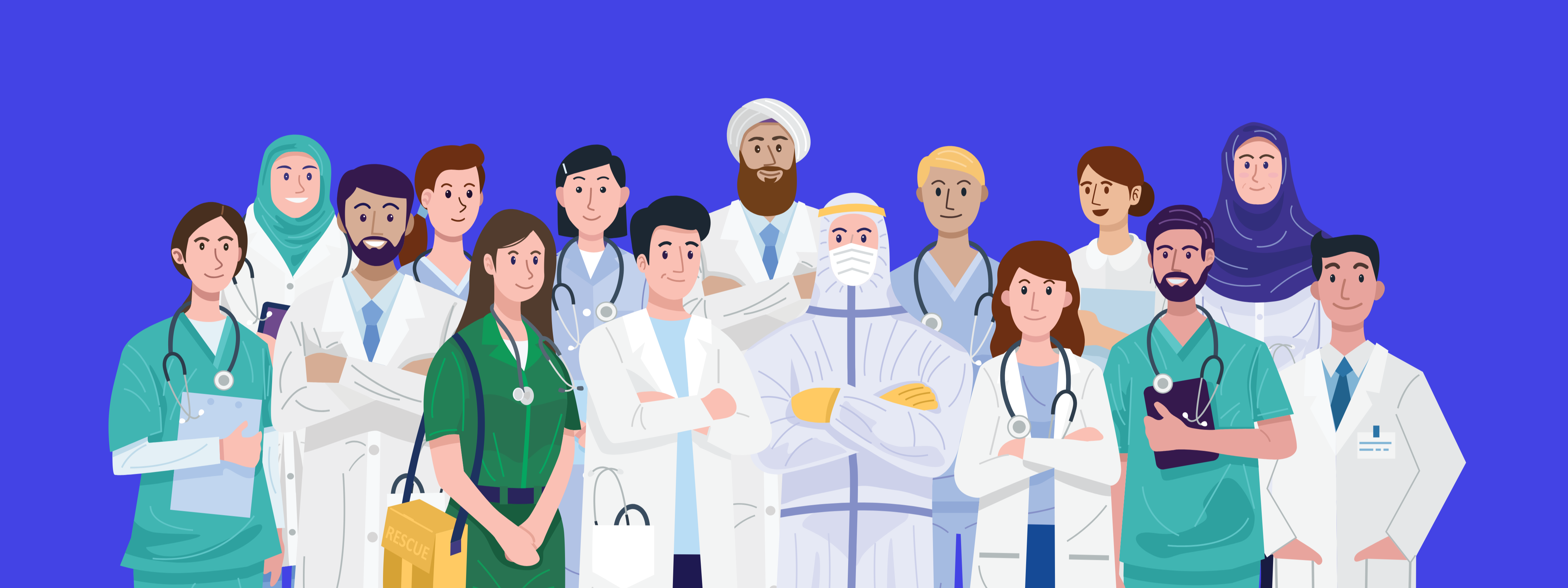What is Staffing Planning and How to Do It
Strong hiring and recruiting practices keep your healthcare business well-staffed with top-talent clinicians. Deciding how to staff your healthcare facility can be challenging without a detailed staffing plan to guide your HR activities.
So, what is staffing planning and how to do it?
Many healthcare organizations have adopted less expensive staffing models for healthcare professionals. Healthcare facilities have developed a variety of staffing solutions with solid effects. From simple strategies such as adopting employee engagement programs to a flexible staff model, healthcare institutions have found solutions to support healthcare workers while incurring costs.
Challenges in Staffing Planning
It is more important than ever for hospitals to plan for the future because the demand for the healthcare system has never been higher. Healthcare staffing planning should be part of healthcare organizations' comprehensive strategic planning because of these current challenges:
- Healthcare reform is expected to bring millions more patients into the system.
- The U.S. population is aging, creating a perfect storm where baby boomers need more care, and healthcare professionals from this generation are retiring.
- Rapid technological advances are changing the functions of roles.
- Regulatory restrictions are increasing.
Make a Strategic Plan
Healthcare organizations should do staffing planning annually, making changes to the plan if required.
Assessment
The first step in planning your staffing needs is to do an organizational assessment:
- Collect the data on past rates of hiring, retention, termination, and resignation of healthcare employees.
- Gather feedback from department heads and subject matter experts on current staffing levels and needs.
- Consider how new technology might change staffing roles and functions.
- Research data to compare and predict your healthcare organization's needs against similar facilities.
You may also consider starting a SWOT analysis of your organization to define the strengths, weaknesses, opportunities, and threats for your current situation.
Staffing Plan
Gaps, priorities, requirements, owners, and resources form the basis of a healthcare staffing plan. Creating a plan is obviously an intensive and demanding process, but it is extremely important to help hospitals deliver the highest quality of care and implement their broader strategy.
Talent Acquisition and Retention
Once the workforce plan is developed, healthcare organizations must determine how to acquire and retain qualified staff. A big part of strategic staffing planning in healthcare is the ability to fill talent pipelines.
To achieve this, staffing planners should identify policies and best practices for attracting, assessing, hiring, training, and retaining top talent. This includes offering recommendations on ways to improve these processes. Keep in mind that this part of your staffing plan should also outline your strategy for hiring completely new roles for your healthcare organization.
Even the most successful acquisition and retention strategies should be part of the annual staffing planning review. It will be important to innovate and try new approaches to remain competitive with other healthcare providers.
Reviewing the Healthcare Staffing Plan
Be clear about what you expect to achieve through ongoing planning and control cycles. Your healthcare organization's goal is to develop and retain talented staff with the skills to support your healthcare facility.
With the dramatic shifts occurring in the healthcare industry, leaders must identify and mitigate the staffing challenges of their respective organizations. Healthcare workforce planning will help start the right discussions to understand and address these issues.
The Cost-Effective Healthcare Staffing Model
DirectShifts has designed an on-demand staffing model that completely removes agency overtime and cuts reliance on travelers by using a local pool of candidates. It is an AI-based model that helps healthcare organizations cut their costs by 40% immediately, so you don't have to get locked up in long-term contracts and can maintain the flexibility to meet the ebbs and flows of patient demands at the same time.
We connect healthcare employers directly with clinicians. Thus, helping healthcare facilities lean on technology-enabled platforms like DirectShifts, which helps them hire healthcare staff 10 times faster.
Save at least $600,000 per month, or $7.2 million per year, and improve annual ROI.
With a financially sustainable model, DirectShifts creates an "Uber-like" experience for healthcare employers who can easily find pre-verified and pre-credentialed candidates from a pool of 850,000+ clinicians at nearby locations. When you need support, you've got DirectShifts team to help streamline your administrative tasks of setting standard rates, credentialing, training, onboarding, timesheets, billing, etc at your fingertips 24*7.
Our flexible staffing model that leverages on-demand talent and technology is one of the most effective ways to staff your healthcare facility while supporting healthcare professionals. Combine this with other cost-effective healthcare staffing models to train your healthcare staff. This will improve employee retention, and your healthcare facility will have a winning model for your business and your people.
This model has also been featured asDirectShifts' On-demand Staffing Model helps Healthcare Facilities cut their labor costs up to 35%
Visit here to understand more about our Staffing Model: Employer (directshifts.com)
January 2, 2023



Comments